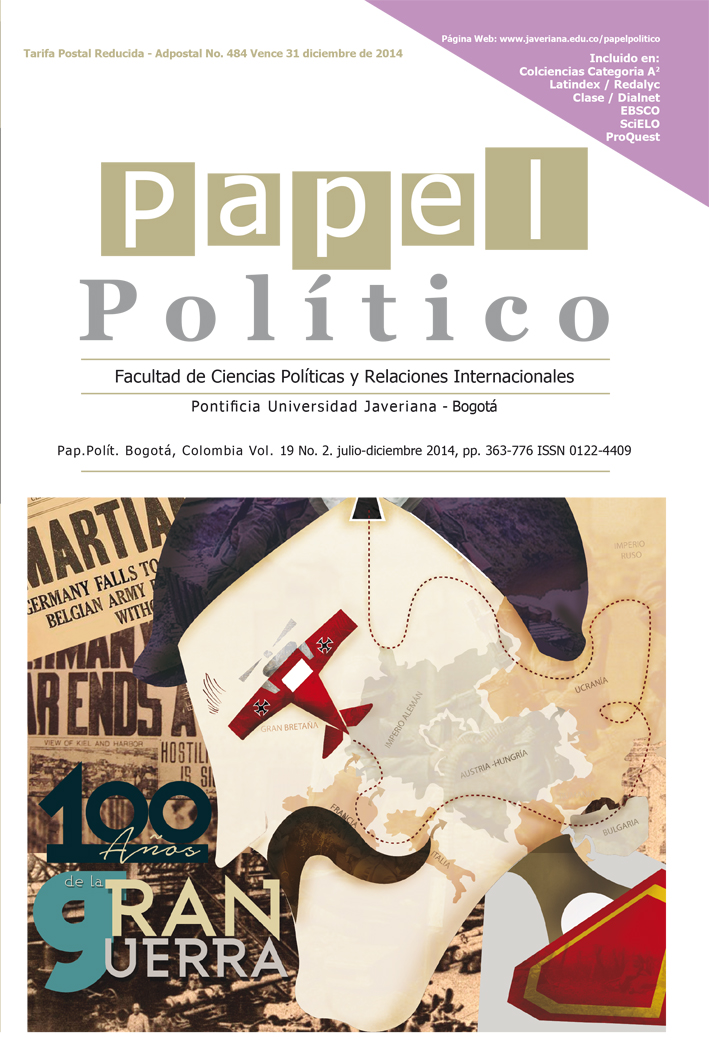Abstract
Studying the Arab revolts is to study an ongoing process, and therefore it has limits which prevent us from formulating final conclusions. However, there is an academic obligation to study this process.In these times of lack of references about how to work politically among societies, the Arab uprising may offer some preliminary lessons. These lessons are not magical formulas, but dilemmas and political tensions, useful and full of questions, such as: how to construct political models, its relationship with ethnical, religious and tribal agendas, the challenges of stigmatization,and the definition of methods and means for political action.This journal is registered under a Creative Commons Attribution 4.0 International Public License. Thus, this work may be reproduced, distributed, and publicly shared in digital format, as long as the names of the authors and Pontificia Universidad Javeriana are acknowledged. Others are allowed to quote, adapt, transform, auto-archive, republish, and create based on this material, for any purpose (even commercial ones), provided the authorship is duly acknowledged, a link to the original work is provided, and it is specified if changes have been made. Pontificia Universidad Javeriana does not hold the rights of published works and the authors are solely responsible for the contents of their works; they keep the moral, intellectual, privacy, and publicity rights.
Approving the intervention of the work (review, copy-editing, translation, layout) and the following outreach, are granted through an use license and not through an assignment of rights. This means the journal and Pontificia Universidad Javeriana cannot be held responsible for any ethical malpractice by the authors. As a consequence of the protection granted by the use license, the journal is not required to publish recantations or modify information already published, unless the errata stems from the editorial management process. Publishing contents in this journal does not generate royalties for contributors.


